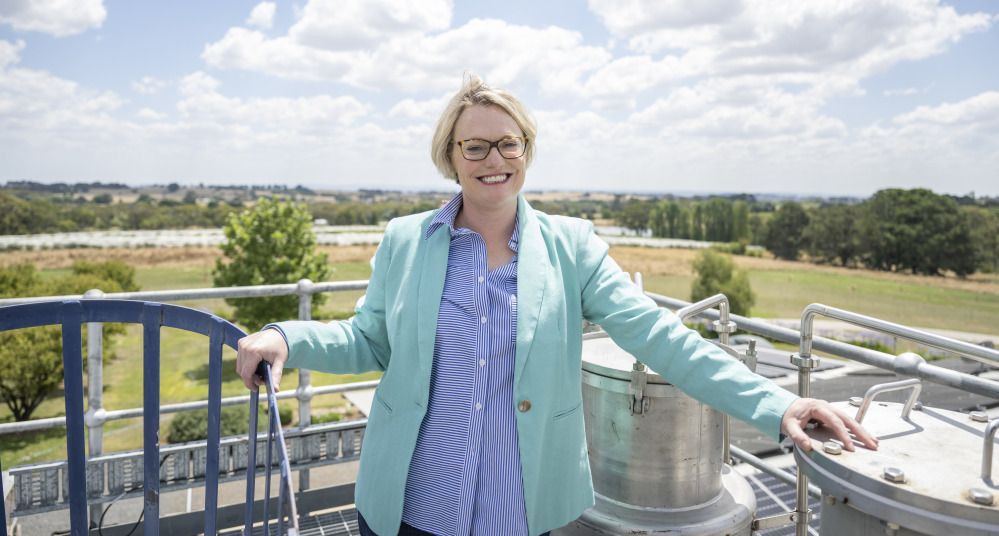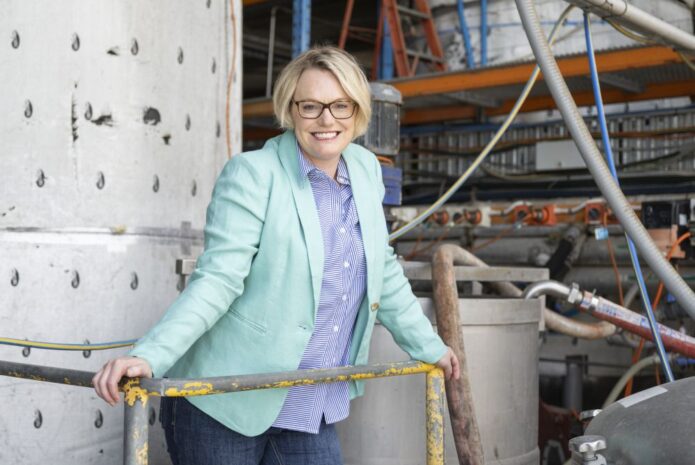Australian startup Cauldron has raised A$10.5 million ($7 million) in a seed round led by Main Sequence and Horizons Ventures to scale a manufacturing platform enabling its partners to produce high-value ingredients via precision fermentation more efficiently in a continuous process.
The cash injection will enable Cauldron to expand its demonstration plant in Orange, New South Wales ahead of a Series A round it plans to open early next year. The company wants to build Asia-Pacific’s largest network of “smaller, smarter” precision fermentation facilities as a CDMO (contract development and manufacturing organization).
Founder and CEO Michele Stansfield told AFN: “There is a huge leap to go from the laboratory to approaching someone like ADM with a 500,000-liter facility. So we’re seeing a lot of interest in that 10,000-liter capacity range where startups can create tons of products, not hundreds of tons, get through the regulatory process, and see if there is a path forward.”
Smaller, smarter, cheaper facilities
She added: “In this market there aren’t going to be too many A$200 million or A$300 million raises for precision fermentation startups to build their own plants. To me, that’s a capital-intensive distraction; these companies should be asset-light. It makes much more sense for us to build smaller, smarter, cheaper facilities.
“We have two 10,000-liter fermentation lines with DSP [downstream processing] in Orange and the intention to go to full scale with five 100,000-liter lines by 2025.
“However, Orange doesn’t have renewable energy and [a cheap, abundant source of] feedstock, so we will be building 500,000-liter facilities co-located with either feedstock or with some sort of infrastructure that is beneficial.
“We’re working very closely with a number of state governments on potentially co-funding these larger facilities,” said Stansfield, who recently secured an A$528,000 government grant to conduct a feasibility study about creating a biomanufacturing hub in Mackay in northern Queensland.

‘We can build a 100,000-liter biomass reactor that will put out more product than a 500,000-liter batch fermentation line’
So what makes Cauldron’s approach more efficient for precision fermentation, whereby microbes such as yeast, fungi or bacteria are now engineered to produce everything from enzymes and high-intensity natural sweeteners to whey proteins?
In a traditional batch process, microbes proliferate until they reach critical mass in a fermentation tank and are then triggered to start producing a target molecule via a change in the media. The batch is then completed, the ingredient extracted, the tank is cleaned, and the whole process starts all over again.
Cauldron, however, has found a way to maintain microbes in a productive state, and then feed them into ancillary vessels where they start expressing the target molecules, said Stansfield.
“This continuous process enables a five-times increase in the amount of product we’re able to get out of a fermenter, Ultimately, what that means is we can build a 100,000-liter biomass reactor that will put out more product than a 500,000-liter batch fermentation line.”
But how long can Cauldron keep microbes happy such that it can keep its continuous production going? According to Stansfield, “We’ve been able to hold it for eight months and 24 days of continuous fermentation at 10,000 liters. Basically, it means we can run the fermentation more often and we produce more product.”
‘We need to build capabilities in Australia for this industry to move forward’
Asked how this compared to the continuous precision fermentation process deployed by US startup Pow.Bio, she said: “It’s the same approach except I’ve been running this myself at 10,000 liters for the last 10 years at [contract research and development provider] Agritechnology.
“Agritechnology has been using microorganisms for food for decades. They’re a family-owned company and the founders are getting on, so last year, the Australian precision fermentation and synthetic biology industry, the research organizations and the [state] governments, got together and said we need to build capabilities in Australia for this industry to move forward. We then created Cauldron with Main Sequence Ventures and the blessing of Agritechnology.”
“On March 8, 2023, Cauldron acquired that precision fermentation IP and the equipment out of Agritechnology through this seed round.”
Cauldron has also recruited David Kestenbaum, former general partner at ZX Ventures, the corporate venture arm of brewing giant AB InBev, as a co-founder and CFO, said Stansfield, who has been working with Australian startups Loam Bio and ULUU.
Cauldron will ‘serve as a regional powerhouse for production’
“If Australia doesn’t tackle this opportunity, others will,” said Phil Morle, partner at Main Sequence,the deep tech fund founded by CSIRO, Australia’s national science agency
“Precision fermentation is already a crucial part of medicines like insulin and many animal feeds but is often done at smaller scale and overseas. Cauldron will serve as a regional powerhouse for production to ensure Australia plays a part in the future of agriculture and other industries.”





